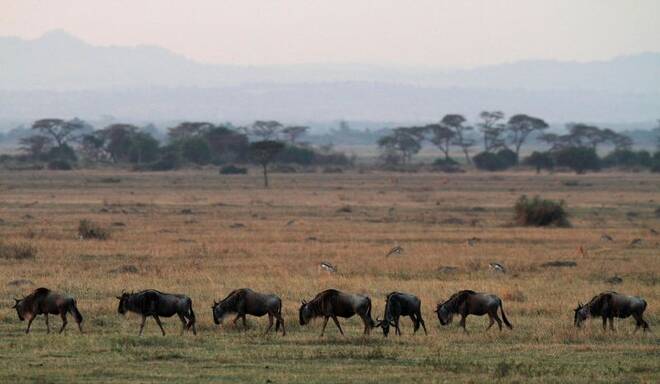Advertisement
Advertisement
Regional court dismisses Maasai eviction case against Tanzania government
By:
DAR ES SALAAM (Reuters) - A regional court on Friday dismissed a case brought by a group of Maasai villagers claiming the Tanzanian government used violence to evict them from their ancestral lands in the north of the country.
DAR ES SALAAM (Reuters) – A regional court on Friday dismissed a case brought by a group of Maasai villagers claiming the Tanzanian government used violence to evict them from their ancestral lands in the north of the country.
Rights groups said the ruling sent a dangerous message that indigenous peoples can be evicted from their land in the name of conservation.
The government said four Maasai villages are located within the boundaries of the Serengeti National Park, which was originally demarcated under British military rule for gaming but redrawn for conservation by subsequent administrations.
The land disputes between the Maasai villagers and the national park management emerged in 2012 but later in 2017 the government ordered the residents to leave and security forces later evicted them by force.
In 2018, the regional East African Court of Justice issued an interim order to halt the evictions, pending a final judgement.
Rights groups and the Maasai community say the villages are outside the park’s boundaries, and that villagers were the victims of a violent police crackdown aimed at forcing them off their traditional lands to make way for trophy hunting by tourists and conservation.
On Friday, three judges at the East African Court of Justice wrote in their ruling that the case lacked merit, saying the Maasai had failed to prove the eviction had taken place outside the park.
They said much of the evidence of alleged violence and brutality was hearsay or inconsistent.
A representative of the Maasai community said the villagers would appeal.
“We are not satisfied with the ruling and we believe the court has erred in analysing the evidence we had provided,” said Jebra Kambole, who represented the Maasai in the interim ruling.
Fiore Longo from Survival International, an indigenous rights advocacy, said the judgement was a blow for the Maasai and for indigenous peoples across the world.
“The court has given a strong signal to the international community that evictions and human rights abuses against indigenous peoples should be tolerated if they are done in the name of protecting nature,” Longo said.
Tanzania has long been criticised by the international community for violence against the Maasai. In 2015, the European parliament passed a resolution condemning the government for violating their human rights.
The government rejects that it has violated their rights.
(Reporting by Hereward Holland and Nairobi Newsroom; Writing by Hereward Holland; Editing by James Macharia Chege and Aurora Ellis)
About the Author
Reuterscontributor
Reuters, the news and media division of Thomson Reuters, is the world’s largest international multimedia news provider reaching more than one billion people every day. Reuters provides trusted business, financial, national, and international news to professionals via Thomson Reuters desktops, the world's media organizations, and directly to consumers at Reuters.com and via Reuters TV. Learn more about Thomson Reuters products:
Advertisement
